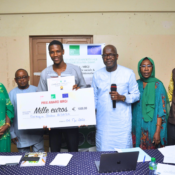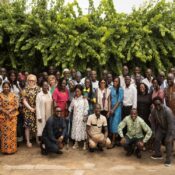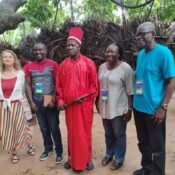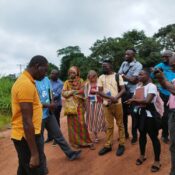Pambazuka essays spur entrepreneurial and intellectual debate at Kampala International University
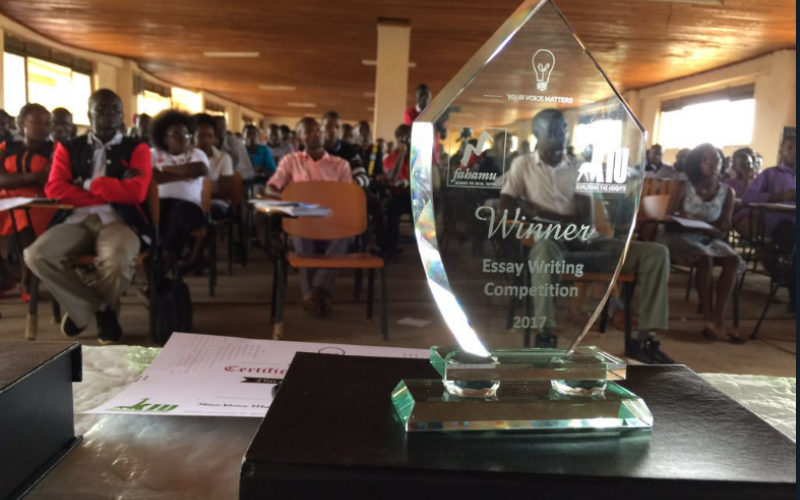
[Reportage] Ghana : Voyage au coeur des sombres secrets du camp des sorcières de Gambaga
Like many young people across Africa, Ugandan youth face the challenge of acquiring appropriate skills and deploying them in achieving their dreams. An essay competition at Kampala International University gave students the opportunity to reflect on this issue and to explore solutions to youth unemployment.
The participation of 15 university students in the essay writing competition in February 2017 in “Your voice matters” project under the FAHAMU-KIU partnership was quite fascinating. In pursuit of social justice, FAHAMU has focused one of its lenses on intellectual engagement with young people to explore solutions to societal challenges in business, agriculture, citizenship, education, environment, governance, migration, culture, peace and security and technology.
The areas covered in the essay competition were relevant, topical and focused on real issues affecting the African peoples. The voices of the youth indeed matter and require utmost support to be heard. This engagement responds to this need and generates strategies to address the emerging issues in the continent. Issues of climate change and environmental conservation, access to capital and entrepreneurship, agriculture and food security, citizenship and the right to nationality, education and professional training, leadership and governance greatly affect Africa. In addition, issues of migration and Africans in the diaspora, religious fundamentalism and culture, the role of peace and security in development as well as use of technology as a tool for innovation and employment creation are fundamental for revitalizing the acumen that Africa would desire to see.
Opportunities for young people in entrepreneurship
The Government of Uganda is striving towards becoming a middle-income country under its Vision 2040. One of the key aspects of achieving this dream is providing much needed skills to the youth, dubbed ‘Skilling Uganda’. This dream is hard to come true if the youth do not have access to capital and fundamental entrepreneurship knowledge and skills to achieve sustainable development. Achieving sustainable development will require significant investment in the attainment of mindset change towards entrepreneurship skills and access to capital. Today, education world over is premised on skills development as a method of learning. The youth, however, require support in accessing capital and starting entrepreneurial ventures.
The Government of Uganda is implementing the Youth Livelihood Scheme (YLS) and supporting access to micro-finance credit facilities. The scheme aims at empowering the youth through access to financial capital and developing entrepreneurship skills. Many youth have enrolled in the scheme although there are still challenges that may hamper the success of the scheme. Among other projects selected and funded include small and medium business enterprises, piggery and poultry projects, vegetable growing and apiculture. The model involves accessing the scheme funds and returning the principal after investment. Policy makers and implementers look at access to financial capital as a pathway to achieving sustainable development. In addition, the government has prioritized the creation of science, technology and innovation (STI) infrastructure in institutions of learning. This programme aims at creating a big number of scientists, engineers and other skilled graduates to fuel industrial development, entrepreneurship and innovation as detailed in the 2009 National STI policy. These strategies, therefore, challenge the youth in higher institutions of learning to harness the available opportunities and strive towards achieving their life goals.
At Kampala International University, we understand the urgency of the matter. The employability of our graduates is very important to us so we have prioritized and designed a number of programs to help prepare our students for a productive job market. From entrepreneurial training, internships and skills enhancement programs, KIU is doing what we can to ensure the best outcomes for our graduates. For example, KIU in collaboration with the Wadhiwani Foundation based in California, USA, is due to launch an entrepreneurship training program for university students and the youth at large. The goal is to provide entrepreneurial skills to the youth enrolled on this program to create campus companies by the time of graduation/completion of the program. In this way, graduates of this program will become job creators and not job seekers. Strategies like this one will in turn contribute to economic growth and enhance national competitiveness.
Current challenges and limitations
The current major youth challenge in Uganda is unemployment, largely due to inadequate skills. This situation has continued to affect the prospects of young people to achieve their dreams. The lack of gainful employment amidst qualifications is a frustrating situation among the youth. Reports from the National Council of Higher Education (NCHE) indicate that the 47 universities and 207 other tertiary institutions produce approximately 700,000 graduates annually for only 90,000 employment positions (NPA, 2016; Ahimbisibwe, 2017). This escalates the unemployment situation known to result mainly from less skilled graduates.
According to the Uganda Bureau of Statistics, unemployment among the youth currently stands at the rate of 20%, where about 60% of the youth are unable to get jobs as a result of courses that are not relevant to the employment and industry needs (UBOS, 2015). Although the government has put in place well designed programmes to equip the youth with financial capacity and entrepreneurship, there are still mind-set challenges, limited awareness and institutional weaknesses that continue to hamper their formidable success. Furthermore, there is inadequate engagement between policy makers, implementers and the youth beneficiaries. This mismatch is detrimental to the success of such initiatives.
Most youth engage in enterprises but such ventures do not stand the test of time, as most do not celebrate their first birthday. This failure is due to limited business acumen among the youth and institutional weaknesses that affect potential success. Investments in youth require systematic processes and prioritization on what the youth are interested in, their capacity to engage and the forecasted returns. Therefore, starting from their own idea is the best approach to cultivate what the youth are able to do. A bottom-up approach is paramount for youth programme success.
Feedback on submissions for the essay competition
Youth engagement through essay competitions on topical issues affecting real people is desirable and relevant in supporting the youth to gain skills in effective research and writing for public consumption. The engagement will be a success if the creative thinking along issues that most affect society is implemented. The creative ideas need support to turn into viable projects. The continuity of this program across Africa will stimulate the spirit of tackling Africa’s own problems using Africa models of development.
The competition at KIU received 15 submissions and three were selected to receive awards, namely, Ladu Moris Emmanuel (Citizenship and the Right to Nationality); Jackob Jonga (Leadership and Governance) and Nasser Kisubi (Environmental Conservation and Climate Change). The winners were all Bachelor of Law students. The engagement of young people to contribute to the process through Pambabuza News Essays Writing Competitions is instrumental and indeed a welcome gesture for pan-Africanism, intellectualism and regionalization.
The platform presents a new chapter of solving some of Africa’s challenges by providing students with an opportunity to share their views and plans for Africa. Bringing students together across Africa will enhance commonality and a spirit of Africanism that will lead to regional confrontation of African challenges. The essay competitions should be extenteded across Africa to give opportunities to young people to appreciate the world around them, develop an idea, hatch it into a concept and develop it into an intervention. KIU appreciates this great partnership and believes in achieving much more in years to come as we continue our quest in ‘Exploring the heights’!
* PROF. GEORGE WILLIAM NASINYAMA is Deputy Vice Chancellor Research Innovation & Extension and DR. MEDARD TWINAMATSIKO is Senior Lecturer, Kampala International University.

